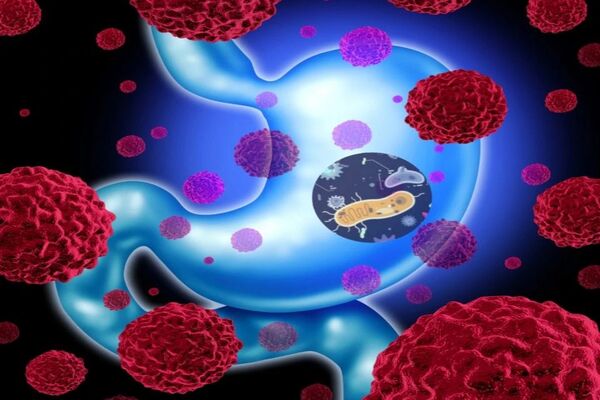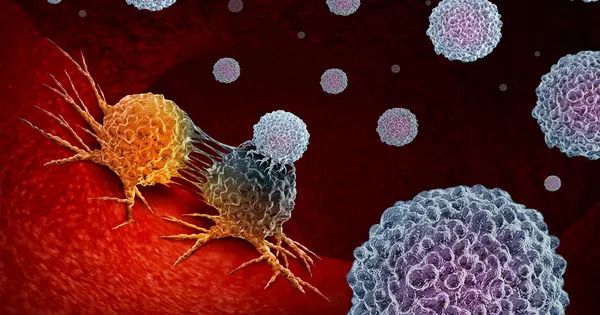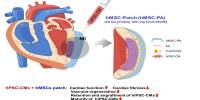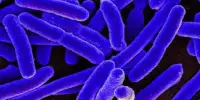Researchers at the Francis Crick Institute, the National Cancer Institute (NCI) of the National Institutes of Health (NIH), and Aalborg University in Denmark discovered that vitamin D promotes the growth of a type of gut bacteria in mice, hence improving cancer immunity.
According to a study published in Science, mice fed a vitamin D-rich diet showed higher immunological resilience to experimentally transplanted tumors and greater responses to immunotherapy treatment. This impact was also observed when gene editing was employed to eliminate a protein that binds to vitamin D in the blood and prevents it from reaching tissues.
Surprisingly, the team discovered that vitamin D affects on intestinal epithelial cells, increasing the quantity of Bacteroides fragilis bacteria. This microorganism improved mice’s cancer immunity by causing transplanted tumors to grow less, but the researchers aren’t sure how.
Mice on a standard diet were given Bacteroides fragilis to see if the bacteria alone could boost cancer immunity. These mice were also more resistant to tumor growth, but not when they were fed a vitamin D-deficient diet. Previous research has hypothesized a relationship between vitamin D insufficiency and cancer risk in people, although the evidence is inconclusive.
A critical topic we are currently attempting to answer is how vitamin D promotes a ‘healthy’ microbiota. If we can answer this question, we may discover novel ways in which the microbiome regulates the immune system, possibly opening up interesting options for cancer prevention and treatment.
Evangelos Giampazolias
To investigate this, the researchers analysed a dataset from 1.5 million people in Denmark1, which highlighted a link between lower vitamin D levels and a higher risk of cancer. A separate analysis of a cancer patient population also suggested that people with higher vitamin D levels2 were more likely to respond well to immune-based cancer treatments.
Although Bacteroides fragilis is also found in the microbiome in humans, more research is needed to understand whether vitamin D helps provide some immune resistance to cancer through the same mechanism.
Caetano Reis e Sousa, head of the Immunobiology Laboratory at the Crick, and senior author, said: “What we’ve shown here came as a surprise — vitamin D can regulate the gut microbiome to favour a type of bacteria which gives mice better immunity to cancer.
“This could one day be important for cancer treatment in humans, but we don’t know how and why vitamin D has this effect via the microbiome. More work is needed before we can conclusively say that correcting a vitamin D deficiency has benefits for cancer prevention or treatment.”

Evangelos Giampazolias, a former postdoctoral researcher at the Crick and current Group Leader of the Cancer Immunosurveillance Group at the Cancer Research UK Manchester Institute, stated, “Identifying the elements that separate a ‘good’ from a ‘poor’ microbiome is a huge challenge. We discovered that vitamin D aids gut bacteria in eliciting cancer immunity, which improves immunotherapy response in mice.
“A critical topic we are currently attempting to answer is how vitamin D promotes a ‘healthy’ microbiota. If we can answer this question, we may discover novel ways in which the microbiome regulates the immune system, possibly opening up interesting options for cancer prevention and treatment.”
Romina Goldszmid, Stadtman Investigator in NCI’s Center For Cancer Research, said: “These findings contribute to the growing body of knowledge on the role of microbiota in cancer immunity and the potential of dietary interventions to fine-tune this relationship for improved patient outcomes. However, further research is warranted to fully understand the underlying mechanisms and how they can be harnessed to develop personalized treatment strategies.”
This study was supported by Cancer Research UK, the UK Medical Research Council, the Wellcome Trust, an ERC Advanced Investigator grant, a Wellcome Investigator Award, a prize from the Louis-Jeantet Foundation, the NCI Intramural Research Program (part of the National Institutes of Health), CCR-NCI, and the Danish National Research Foundation.
Dr Nisharnthi Duggan, Research Information Manager at Cancer Research UK, stated: “We know that vitamin D insufficiency can cause health problems; however, there is insufficient evidence to link vitamin D levels to cancer risk. This early-stage mouse research, combined with an examination of Danish population data, aims to close the evidence gap. While the data point to a probable link between vitamin D and immune responses to cancer, more study is needed to validate this.
“A little sunlight can help our bodies produce vitamin D, but you don’t have to sunbathe to accelerate the process. Most people in the UK can obtain adequate vitamin D by spending brief periods of time in the summer sun. We can also obtain vitamin D through our diet and supplements. We know that keeping safe in the sun can lower your risk of cancer, so seek shade, cover up, and use sunscreen when the sun is out.”
















